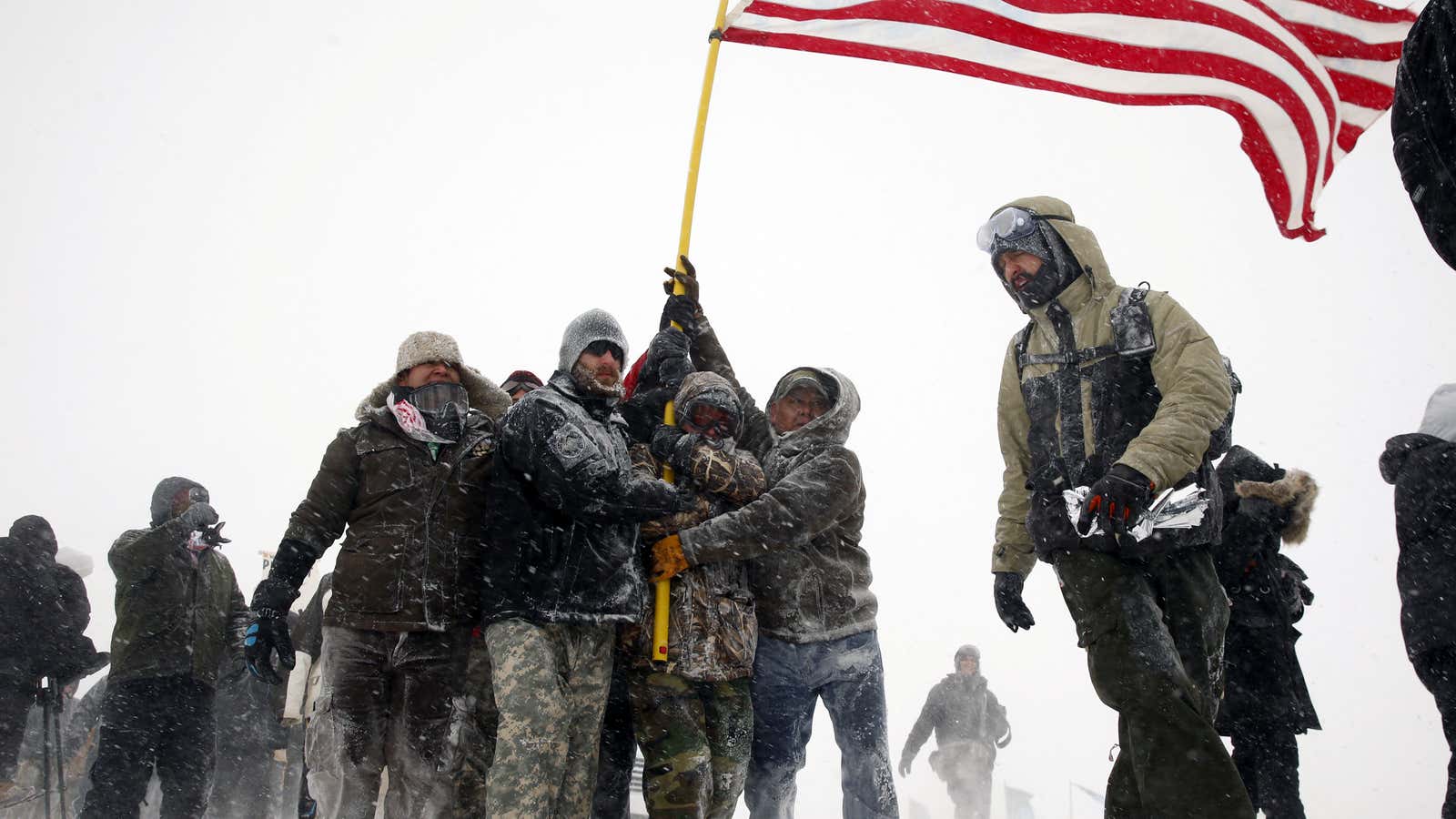To the nation’s surprise, a day after 2,000 veterans and first responders appeared out of nowhere to support the Standing Rock Sioux Tribe’s protest of the Dakota Access Pipeline, the US Army Corps of Engineers effectively shut down the project. Now that same veterans group has announced plans to take their army for social justice on the road, giving hope to environmentalists and peace activists everywhere.
The presence of the veterans heightened the dramatic tension in what was largely seen as a noble battle between a small group of Native Americans and environmentalists against heavily armed police. During the course of the protests there were several high-profile clashes, including some in which police used rubber bullets and tear gas on activists. One night the police turned a water cannon on men and women despite sub-freezing temperatures. Opponents of the oil pipeline had spent months working to derail its construction because its planned route would cross within a half-mile of the Standing Rock Sioux reservation border. A breach would have put the local water supply at risk.
The veterans, who became instant media stars, expressed a range of motivations for offering solidarity with the tribe. Some were Native Americans who had served in Korea or other wars, and some had become anti-war activists since returning from Vietnam or more recent tours of duty in Iraq, according to the New York Times.
One veteran told the New York Times that he was moved by televised scenes between the police and civilians and shocked that what he was seeing was happening in the United States. Veteran Jason Brocar, 44, told the Times, “Even in Iraq, there was some rule of engagement. If these guys don’t have weapons, it just doesn’t make sense to me that it’s a shooting gallery.”
Now the leaders of the veterans group have announced plans to take their “peaceful, unarmed militia” to Flint, Michigan, where their presence will bring reporters and cameras, once again in service of a struggle for clean water.
Last year, regulators found that Flint’s water supply contained illegally high levels of lead. The problem had been essentially ignored for more than a year after residents first complained of rashes, headaches and a foul odor from the brown or yellowish water that ran from their taps. As an investigation into the crisis surfaced stunning cases of overlooked illnesses and warnings, Flint—where 40% of the 100,000 residents live in poverty, and the majority of residents are black—came to represent the fallout from America’s tolerance of extreme inequality. Public attention has since faded, however, even though the crisis has not been fully resolved.
If the veterans can maintain a dedicated following and financial backing (donations have surpassed $1 million), the group has the potential to morph into something of a roaming force for moral oversight in the nation’s hotspots. If this does come to pass it would not be the first time that US veterans have stepped up to play that role recent history .
It’s unclear how the veterans will get to Michigan and when they plan to arrive; organizers did not respond to Quartz’s request for comment. A post on the group’s GoFundMe page does explain that it is now “collecting names for future missions on a new roster” and that its next mission could begin as early as the second week of December. “More to come,” the notice says.
